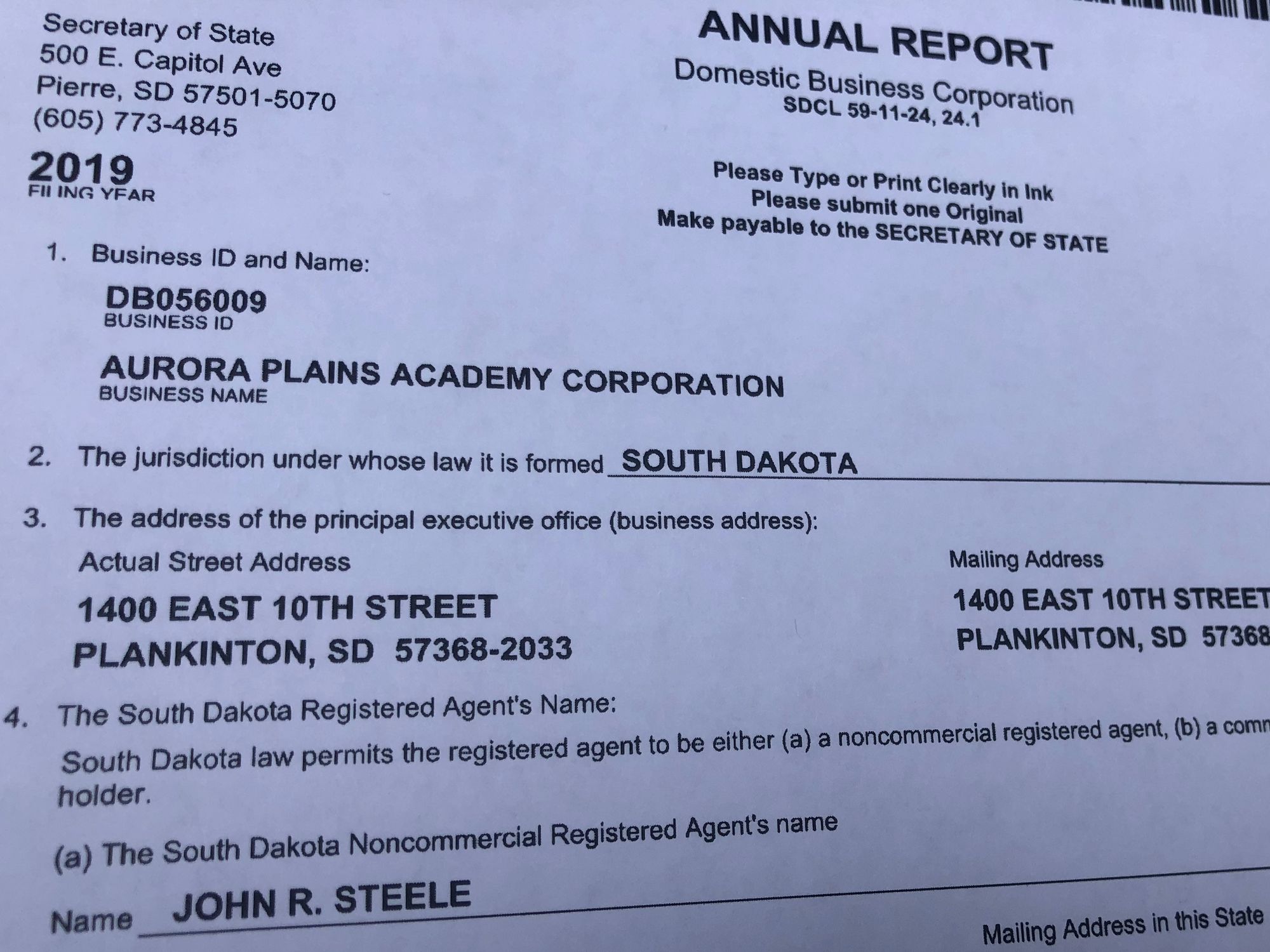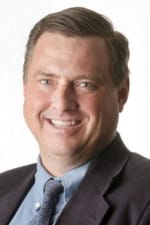When Lauren Schroeder sought justice for her son who she said was physically abused by employees of Aurora Plains Academy, she grew frustrated that no one would listen.
Schroeder said after an independent investigator with Child’s Voice at Sanford Children’s Hospital in Sioux Falls and an officer with the Aberdeen Police Department both confirmed her son’s injuries, she tried to get local authorities involved to hold academy employees accountable.
Schroeder said she twice left messages for the Aurora County State’s Attorney, John R. Steele, hoping he would investigate or pursue possible charges. But Schroeder said she never heard back from Steele or his office.
When Schroeder later learned of Steele’s legal connection to the academy, she said she wasn’t surprised her son’s case went nowhere.
Steele, who has been state’s attorney for 36 years, is also the legally registered agent in South Dakota on behalf of Aurora Plains Academy Corporation that is owned by Clinicare Corp., the Wisconsin parent company of Aurora Plains, and has been for several years.
“He has a clear conflict,” Schroeder said.
Schroeder is one of two parents interviewed by News Watch who raised concerns that Steele may not have fully represented their interests in cases in which their children were injured at Aurora Plains.
In an interview, Steele denied those claims and said he is not paid for serving as the registered agent for Clinicare’s Limited Liability Corporation in South Dakota. He also said he does not see his dual role as a conflict of interest.
Steele, who also practices privately, said his connection to the firm has never influenced his decision-making or actions as state’s attorney.
Steele referred to his role for Clinicare as serving as the firm’s “mailbox” in that he forwards paperwork between the firm and the state. “I certainly don’t shade any of my prosecutorial decisions because of the fact I’m their mailbox,” Steele said.

However, even his limited connection to the academy and its ownership creates a legal relationship that could raise ethical questions, according to Tom Simmons, a University of South Dakota law professor and expert in legal ethics.
“Even if he’s just filing that annual report to the secretary of state, I think it would be legal representation; he would have an attorney-client relationship, but on a very narrow scope,” Simmons said. “And that would play into whether there was a determination of a conflict of interest.”
Simmons said Steele’s decision not to accept money from Clinicare for his services and the fact that the LLC is a corporation and not a person reduce the likelihood that the State Bar of South Dakota would see a conflict of interest. Simmons said South Dakota used to have a rule that even the “appearance of impropriety” could be a conflict of interest, but said that language no longer exists in state ethics rules.
Simmons did point to a 1969 state Supreme Court case that dealt with a prosecutor who played a dual role in a case that led to a fatal DUI defendant’s being awarded a new trial as a result.
In State v. Basham, the high court based its ruling in part on South Dakota statute 7-16-18, which essentially states that a state’s attorney should only represent the state and not have a relationship “nor be concerned as attorney or counselor for either party” in a civil or criminal case.
Simmons said that Emily Mitchell, who pursued a claim of abuse against an employee of Aurora Plains after her son, Ender Murray, was injured during a restraint at the academy, may have a valid reason to be upset over Steele’s connection to Clinicare and the academy. Steele personally interviewed the Aurora Plains employees in court at the preliminary hearing where a judge ultimately decided that the criminal case should not go forward. Steele did make the decision to pursue the charges in the first place, however.
“I can sympathize with the parents,” Simmons said. “But for one thing, the agent role sounds like more than it really is, and that’s part of the impression that creates.”
Steele said that in his role as prosecutor he regularly receives and reviews copies of incident reports from the state involving resident injuries or complaints regarding Aurora Plains. “Sometimes I’ll get three or four a week and sometimes I’ll go a month or more without seeing one,” he said.
Steele would not comment on the nature of the complaints or release their contents. “I see reports, most of which are unsubstantiated,” Steele said. “You’re dealing with kids who make accusations, but that’s as far as I can comment.”
Steele serves as registered agent for several LLCs in South Dakota. He was also the legal agent for an LLC called Training School Campus Development Company, which was formed in 2003 to fix up and lease the former State Training School campus to a private company. Steele said he formed that LLC and became the registered agent for Clinicare at the behest of the Aurora County Commission, which wanted someone to protect the jobs and revenues created by having the academy operating in the county.
The 2019 LLC paperwork that names Steele as registered agent includes under a section listing “principal officers” the names of Clinicare President David W. Fritsch and Donald G. Dreske, also listed as president of the firm.
At one point in the interview with News Watch, Steele suggested he might end his legal relationship with Clinicare and Aurora Plains Academy.
“I don’t have any personal or business relationship” with anyone now working at Aurora Plains or Clinicare, Steele said. “But since you’re raising the issue, I’m thinking maybe they should have a different registered agent.”




